
Advancing UTAR TCM to International Arena
“Traditional medicine practitioners are heroes and heroines who provide medical services where Western medicine is out of reach. Traditional Chinese Medicine (TCM) is a compilation of rich experiences and knowledge accumulated over thousands of years through medical practices. It has its merits,” Faculty of Medicine and Health Sciences (FMHS) Department of Chinese Medicine Head Assoc Prof Dr Te Kian Keong said as he explained his view towards TCM.
Dr Te is a TCM expert who graduated from Shanghai University of Traditional Chinese Medicine. “I initially planned to study medicine in China. However, at that time, I couldn’t decide whether I wanted to pursue Western or Chinese medicine eventually I decided to study at Shanghai University of Traditional Chinese Medicine,” said Dr Te.
Sharing his experience, Dr Te explained that he came back to Malaysia in the year 2006 and served in Tung Shin Hospital from 2007 to 2010. In 2010, he moved to UTAR’s TCM department and started an international partnership era.
Dr Te said, “Our partnership with many universities, especially the Nanjing University of Chinese Medicine, has greatly assisted in the growth of UTAR TCM. We came together to develop our TCM department and provide overseas industrial training for TCM students. We have also established many other fruitful collaborations.” UTAR commenced its first international partnership with Nanjing University of Chinese Medicine (NJUCM) for its TCM programme. When the TCM course was initiated in the year 2010 at UTAR, NJUCM sent a helping hand by recommending its experienced professors and associate professors with academic background in TCM teaching, research and clinical training to be employed by UTAR for teaching and developing curriculum in the Department of Chinese Medicine. These experienced academics were also recognised by the Chinese government. NJUCM also assisted UTAR in curriculum planning and development as well as in the delivery of TCM courses. They also facilitated the training and development of TCM faculty members of UTAR.
“Other than that, UTAR also built a very good rapport with Guangxi University of Chinese Medicine (GXUCM). UTAR’s collaboration with GXUCM started way back in 2011 when we signed a memorandum of understanding (MoU) on 1 November 2011 for collaborations in TCM education and research projects. Over the years, UTAR and GXUCM have been actively involved in visits, exchanges, joint teaching and research projects. Both parties have put in much effort to facilitate all the activities which were mutually beneficial. With the acceleration of the Belt and Road Initiative, China has gradually strengthened its support for the revitalisation and development of TCM, especially beyond China. Therefore, the setting up of China-Malaysia Centre for Traditional Chinese Medicine (CMCTCM) in UTAR is indeed one step closer for further collaborations between China and Malaysia,” he added.
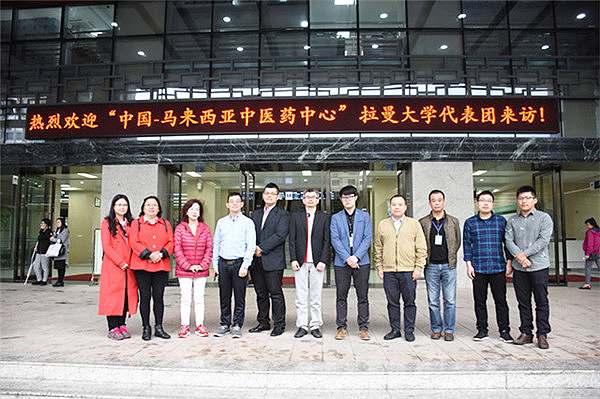
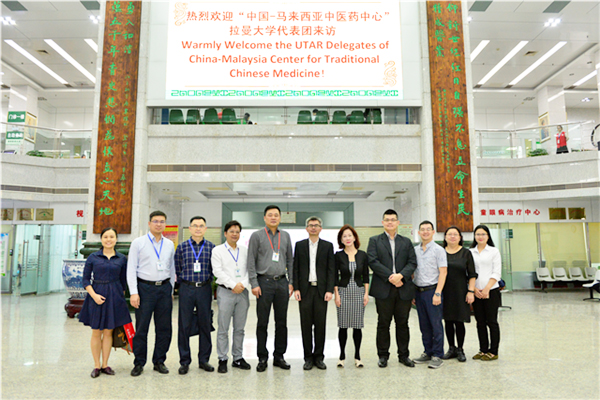
Sixth from left: Dr Te visiting GXUCM to discuss on the project of China-Malaysia Centre for Traditional Chinese Medicine (CMCTCM)
According to Dr Te, Yangzhou University (YZU) was also one of the prominent universities that UTAR collaborated with. Both UTAR and YZU were actively involved in the international students exchange programme and clinical practice at Yangzhou Hospital of TCM (YZSZYY). The collaboration with YZSZYY was made to train UTAR Chinese Medicine students.
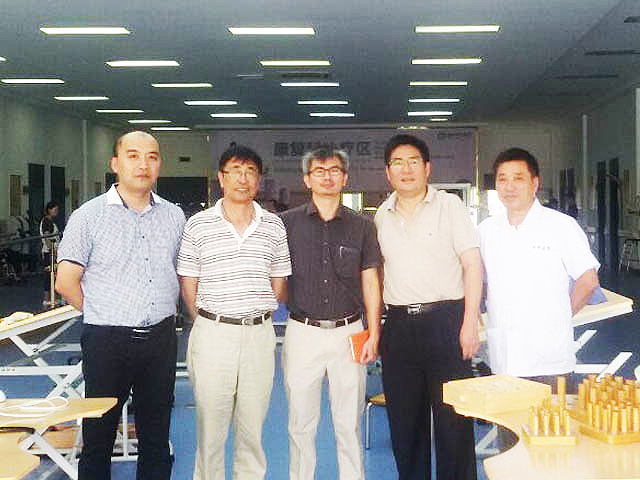
Dr Te (middle) visiting Yangzhou Hospital of TCM
UTAR has also joint hands with several other universities. The universities include Shaanxi University of Chinese Medicine (SNUCM), Henan University of Chinese Medicine (HUCM), Guizhou University of Traditional Chinese Medicine (GZUTCM) and China Medical University, Taiwan (CMU). The collaboration with these universities aimed to promote exchanges, joint teaching and joint research projects.
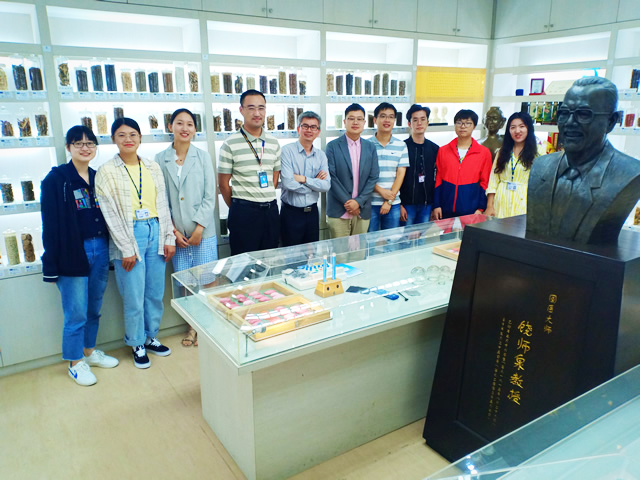
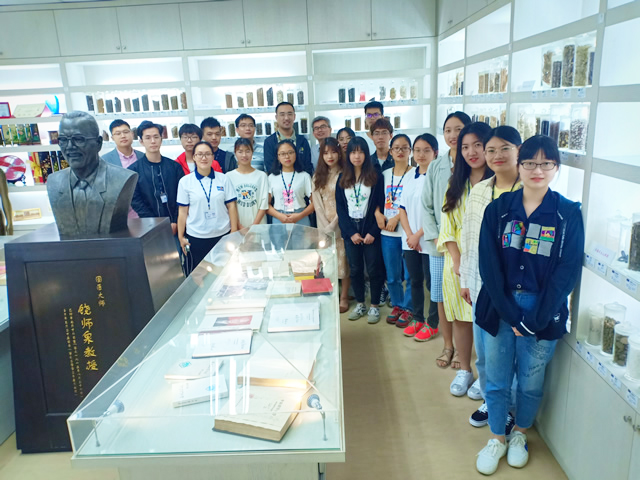
Exchange students from Guangxi University of Chinese Medicine and Yangzhou University in China at UTAR
Dr Te said, “UTAR provides good opportunity to TCM students for internship programme. The students here would usually look forward to their internship programme because the universities provided are well known for their excellence and quality education. The students are usually placed in GXUCM, YZSZYY, HUCM, SNUCM, Tung Shin Hospital and etc. GXUCM was the first university to collaborate with UTAR for internship placement.”
“The TCM programme in UTAR is conducted for five years. The first four years of study is conducted in Malaysia, while the last year of study, the fifth year, students will attend clinical posting. Students can either choose to have their clinical posting for 25 weeks (six months in overseas and four months in Malaysia) or 41 weeks in overseas or 41 weeks in local. They also need to complete eight clinical practices for Acupuncture and Moxibustion, Tuina, Internal Medicine, Gynaecology, Paediatrics, Oncology, Hospital Ward and Chinese Medicine Pharmacy throughout the internship programme. Upon completing and passing the eight clinical practices, they can graduate from the Bachelor of Chinese Medicine (Hons),” explained Dr Te.
Besides being exposed to different types of learning, UTAR students are also given the opportunity to practice different regulations of relevant Act in overseas and Malaysia. For Malaysia’s regulation Traditional and Complementary Medicine (T&CM) Act is used to strengthen quality assurance, safety, proper use and effectiveness of T&CM by regulating T&CM products, practices and practitioners. Besides, it is also used to promote universal coverage by integrating T&CM services into health care service delivery and self-health care. With this T&CM Act, TCM practitioners need to follow the rules and regulations and administer their skills to the community.
“After students graduate from UTAR, they would usually land in places such as Tung Shin Hospital, Peking Tongrentang (M) Sdn Bhd, Sunway TCM Centre, 1 TCM Clinic, Trimedic Healthcare Centre, Shi Ji TCM Centre, Xing Lin TCM Centre, Xi Slim & Beauty TCM and many more. There are also graduates that operate their own TCM clinic. The employability rate for UTAR TCM students is more than 90%. Before they even graduate from UTAR, 50% of the students would have received job offers. More than 90% of UTAR alumni are still in the TCM field and I believe they will continue to uphold the vision of TCM which is to serve the people and the community,” Dr Te said proudly.
© 2020 UNIVERSITI TUNKU ABDUL RAHMAN DU012(A).
Wholly owned by UTAR Education Foundation Co. No. 578227-M LEGAL STATEMENT TERM OF USAGE PRIVACY NOTICE